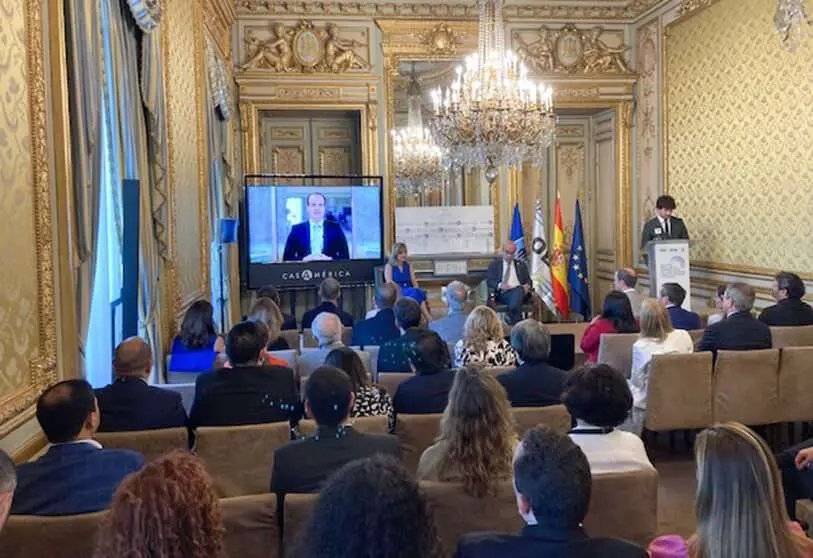Seeking an education model for the 21st century in Latin America and the Caribbean

"Nobody learns when they are hungry, nobody learns when they are afraid, nobody learns in an environment of insecurity". This statement, as resounding as a triple hammer blow, was made by Luis Humberto Fernández Fuentes, head of the Mexico City Education Authority. Together with his colleagues, ministers and experts from Argentina, Bolivia, Brazil, Colombia, Ecuador, Guatemala, Honduras and El Salvador, he took part in a seminar at the Casa de América in Madrid to try to reach a consensus on an education model for the 21st century in Latin America and the Caribbean.
The meeting was promoted by the Organisation of Ibero-American States (OEI) and the Inter-American Development Bank (IDB), institutions that since the summer of 2021 have been working on a regional strategy that aims to develop hybrid education models for the countries of the region. All of this is a consequence of the pandemic, which has particularly affected Ibero-America, the most affected region in the world, with 180 million students affected.
Statistics from both organisations certify that learning losses during the first year of the pandemic were 90% in primary education and 72% in secondary education. An unmitigated catastrophe, whose negative effects need to be reversed as soon as possible.
Emergency solutions were then put in place, such as the use of radio and television to provide distance learning to mitigate very partially the interruption of normal education. This dramatic episode highlighted the wide digital divide that exists between Latin American countries. This gap was evident in the unequal and heterogeneous emergency measures that were put in place to tackle the loss of learning, while at the same time overcoming connectivity and access problems.
According to IDB figures, at least 77 million people do not currently have access to quality internet in rural areas of Latin America and the Caribbean, while the probability of school dropout among 12-17 year olds has increased by 13%.

Mariano Jabonero, secretary general of the OEI, explained that in public policy one must distinguish between what is urgent and what is important, and with the outbreak of the pandemic "it was necessary to address what was urgent with mechanisms to alleviate the situation in a comprehensive manner". However, Jabonero recalled that in Latin America, the majority did not have these tools: "there was a lack of quality, equity and inclusion". And he launched a challenge: "The important thing now is for the region to have a hybrid education proposal [face-to-face and distance] that also improves productivity", which has stagnated for no less than 60 years, as well as to prevent new pandemics.
In turn, Mauricio Claver-Carone, president of the IDB, who spoke via video link from Washington, urged that investments be focused on the digital transformation of education, on training high-quality teachers and on implementing 21st century infrastructure in schools in rural and high-poverty areas. For Claver-Carone, who put at 450,000 dollars the projects that the IDB has already granted for this purpose, "a real commitment and conviction is needed from the entire educational community (public and private sectors and civil society) in order to close historical gaps, and ensure that young people develop the skills they need to respond to the demands of the labour market not only today but also in the future".
For her part, Pilar Alegría, Spain's Minister of Education and Vocational Training, said that the digital transformation, which is a reality in our children's lives, must be made the best of without demonising it. "It is a powerful tool to achieve the objectives of the education system: to expand school enrolment, reduce school dropout rates and improve the quality of knowledge acquired with motivation".
Both the OEI and the IDB are hopeful that this commitment will eventually make up for the region's backwardness, which is always rooted in inequality. The IEO, whose General Secretariat is based in Madrid and which has 23 member states, has been the first intergovernmental body for South-South cooperation since 1949.
Founded in 1959, the IDB is one of the main sources of long-term financing for economic, social and institutional development in Latin America and the Caribbean. It also supports cutting-edge research projects, and provides policy advice, technical assistance and training to public and private organisations throughout the region.









